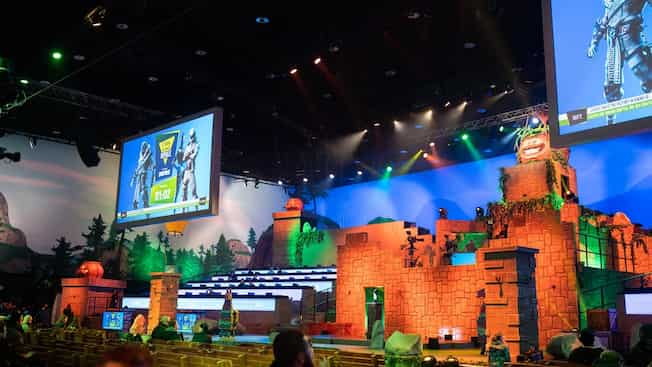Professional sports are more interactive than ever before. While in the past they was merely a form of entertainment that you could consume, today there are more ways to get involved than ever before. One of the most popular is betting, which allows fans to test their knowledge of their favourite sport by predicting the outcomes of games and entire seasons. It’s become a common activity, particularly with sports like football, thanks to bookies like Sky Bet offering free bets that punters can use to make these wagers.
Another way to interact with professional sports that has become a hit among fans is video games. While it isn’t an overly new concept, given that sports-themed video games have been around since the 1970s, video games have really come into their own in the last decade or so. Advancements in technology have made them more realistic, immersive and engaging.
For example, improvements in graphics processors have allowed developers of games like FIFA, Madden and F1 to create content that looks almost as good as it does in real life. While older games from the 1990s may have been forced to use generic models for each player and car, today’s titles see individual recreations for each one.
On top of that, the internet has made modern sports games more competitive and a bigger challenge for players. Instead of only being able to face the pseudo-AI that controls other players in offline single-player mode, online matches and tournaments allow people to compete with or against each other. Multiplayer functionality like this can be adversarial, where a player competes against another (or several others), or cooperative where they play on the same side.
But the concept of multiplayer gaming has become more than just a way for individuals to challenge their skills against strangers over the internet. It has helped to foster an entirely new form of competition. Esports have enjoyed an explosion in popularity during the last few years, but are they a passing fad or the future of sports?
The Rise of Esports
Esports, like video games themselves, are not new. In fact, the first-ever esport event took place in 1972 using Spacewar!, a multiplayer game created for the PDP-1 computer. Similarly, Nintendo ran a live esports series in the 1990s using specially-created cartridges for the NES.
However, esports have come into their own more recently thanks to the proliferation of the internet. From the early ‘modern’ esports events in the 2000s, which attracted a few thousand people at a time, competitions now collectively attract followings of more than 500 million people. These half a billion fans are made up of roughly equal parts: the ‘enthusiasts’ who are incredibly passionate about competitive video gaming, and the ‘occasional viewers’ who have a more passing interest.
The number of esports fans has been growing steadily for over a decade and current forecasts predict it will rise above 600 million by the end of 2025. That would suggest esports are here to stay rather than being a fad that will fizzle out.
Big Backers
We’ve established that demand for esports is high. We can also see that the supply is available to serve these fans all the esports content they want. This content comes from video game publishers looking to find new ways to market their content, gaming hardware manufacturers hoping to show off their latest peripherals, and other brands that want to be associated with cool and exciting projects.
Most of the biggest esports leagues and teams are either owned by a video game company or are heavily sponsored by them. For example, the League of Legends World Championship is organised by Riot Games, the company behind the game itself.
However, it isn’t just video gaming brands that are throwing their weight behind esports. Traditional sports leagues and teams are also getting involved as a way to connect with younger audiences that they hope will become life-long fans. For example, Formula 1 operates its F1 Esports Series to simultaneously promote its video game and to also engage with a new demographic that may not previously have been interested in the sport.
With so many different interests and backers involved in esports all showing clear commitment, these competitions really could be the future of sports.

